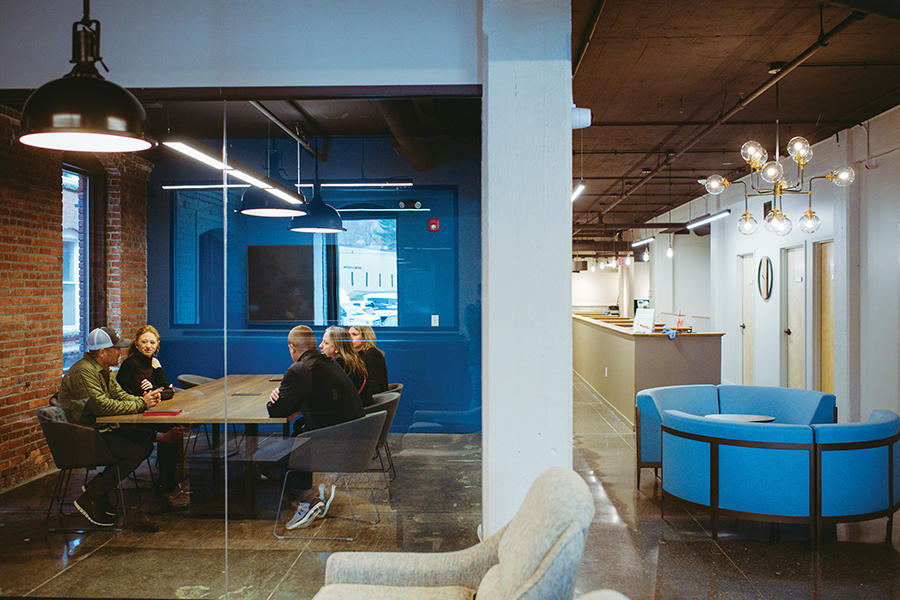The first time Edward Greeley walked into the historic mill building on Pulaski Street in Peabody, the space was packed, from floor to ceiling, with broken old equipment and decades of trash. The structure was dilapidated, and the only tenants were junk dealers and motorcycle clubs.
But where previous visitors to the building had seen obstacles and risk, Greeley saw potential.
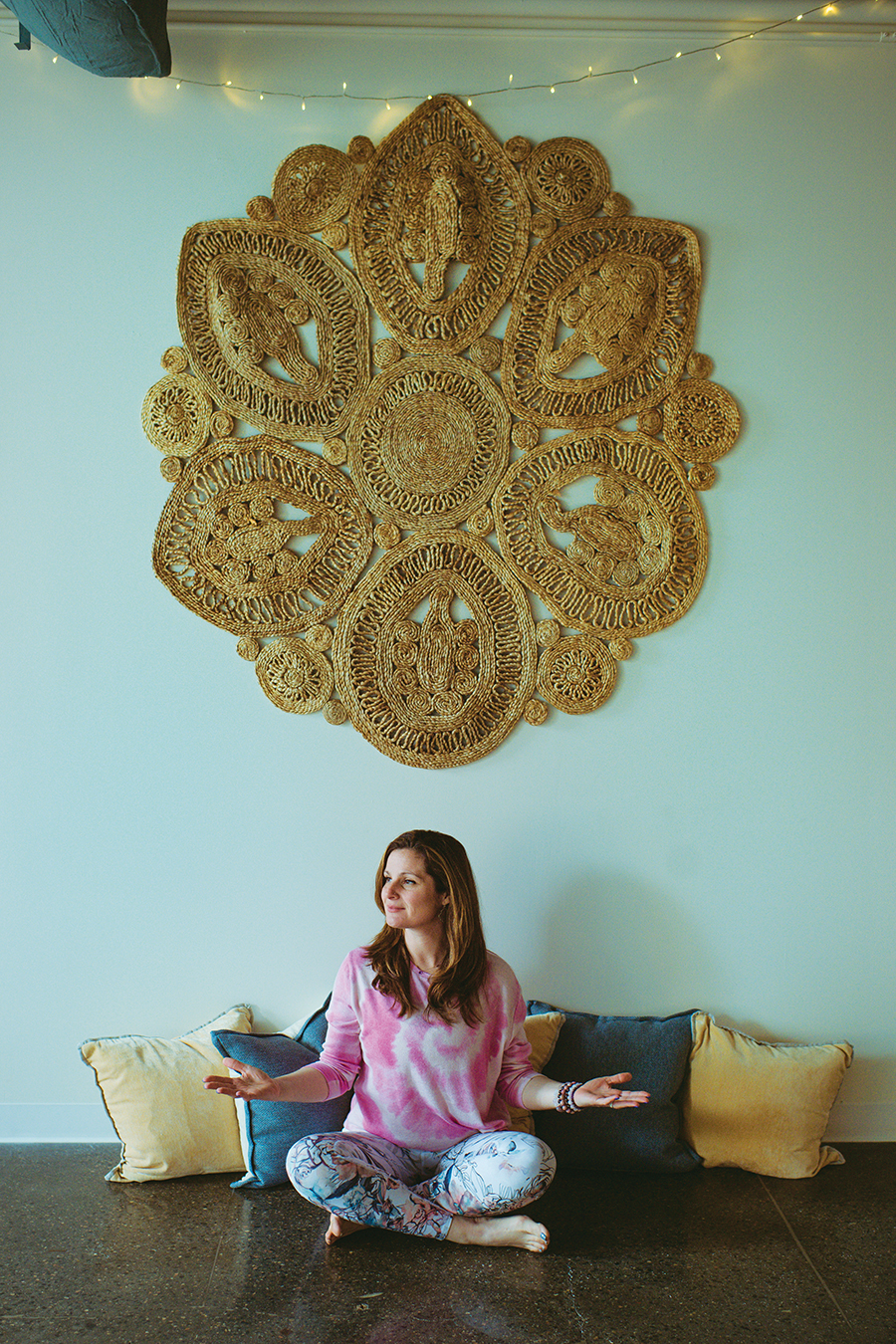
“No one wanted to invest in the property, no one could see it,” he says. “But I had a plan for exactly what I wanted to do.”
Now, five years later, Greeley has brought his plan to life, transforming the mill into an eclectic and vibrant collection of businesses including a coworking space, fitness and dance studios, a salon, a daycare center, a brewery, antique dealers, and photographers.
“It’s a unique place,” Greeley says. “A fun place, a family place.”
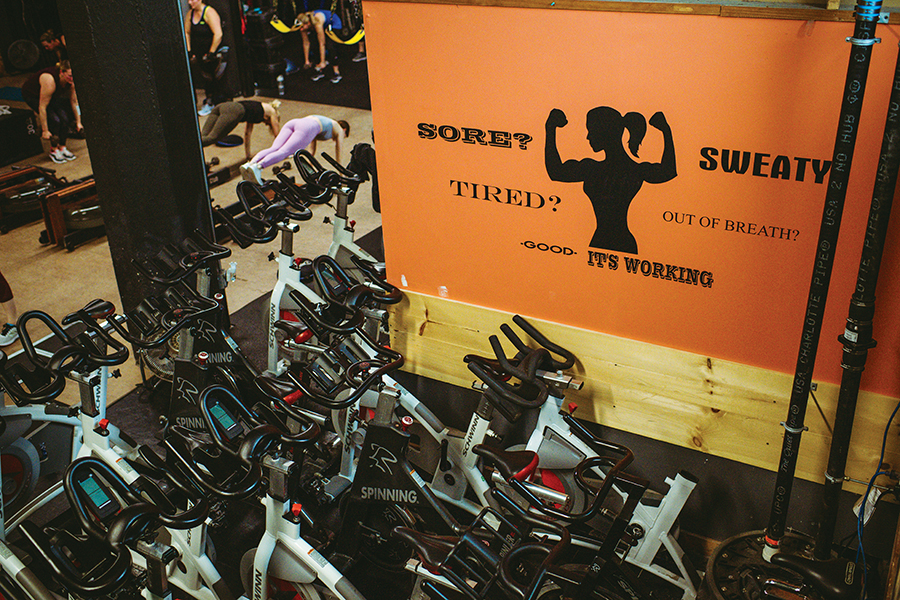
The building was originally a tannery during the first half of the 20th century, when Peabody was one of the nation’s leading leather producers. Greeley happened upon the mill in 2015 when he was searching for a location for his kitchen and cabinetry business, New England Cabinet.
He was immediately interested in buying the building, but initially just rented a space. In 2018, he came to a deal with the owner, completed the purchase, and got to work. He named the project Mills 58, a reference to its historical use and its street number, and started cleaning out the detritus and assembling a group of tenants who would form what he hoped would become a genuine community.
“What piqued my interest was Ed’s description of his vision for the building,” says Matt Genzale, co-founder of WorkTank, the coworking space that was one of the project’s first tenants.
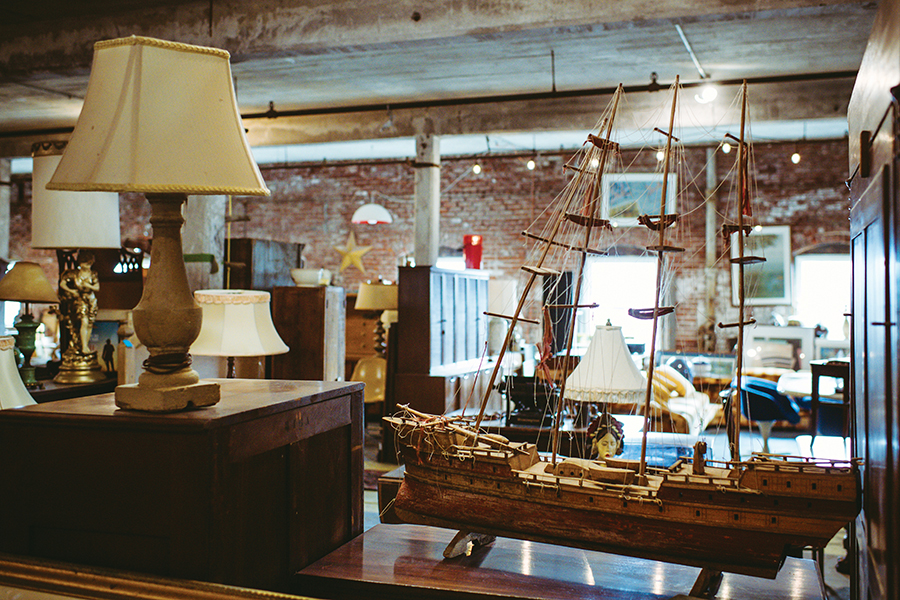
As he recruited tenants, Greeley wanted to create a roster of businesses that would make Mills 58 an appealing and useful place all day long. The first business to go in was a daycare to provide child care options for the entrepreneurs who would fill the other vacancies. The coworking space was another early occupant; the space tries to keep rates lower than some of its competitors so it can be accessible to a range of income levels.
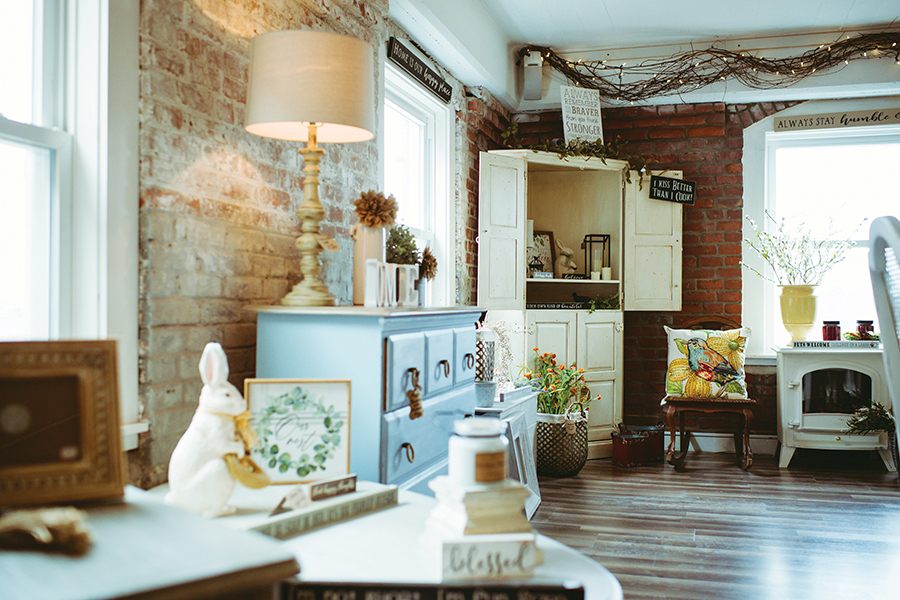
At Graceful Home, a light-drenched room features elegantly refinished furniture and home décor. There’s a used bookstore, a boudoir photography studio, and a salon offering hair and nail services and massages.

On the first floor, Essex County Brewing Co. creates a range of beers in gleaming steel tanks and serves up brews and snacks in an adjoining, family-friendly tasting room; the brewery will be expanding its production operations in the building in coming months. On the fourth floor, a sprawling multivendor antiques shop tempts visitors to wander and browse for hours. Down the hall, popular meat subscription service Butcher Box has built a kitchen for testing recipes and shooting videos.
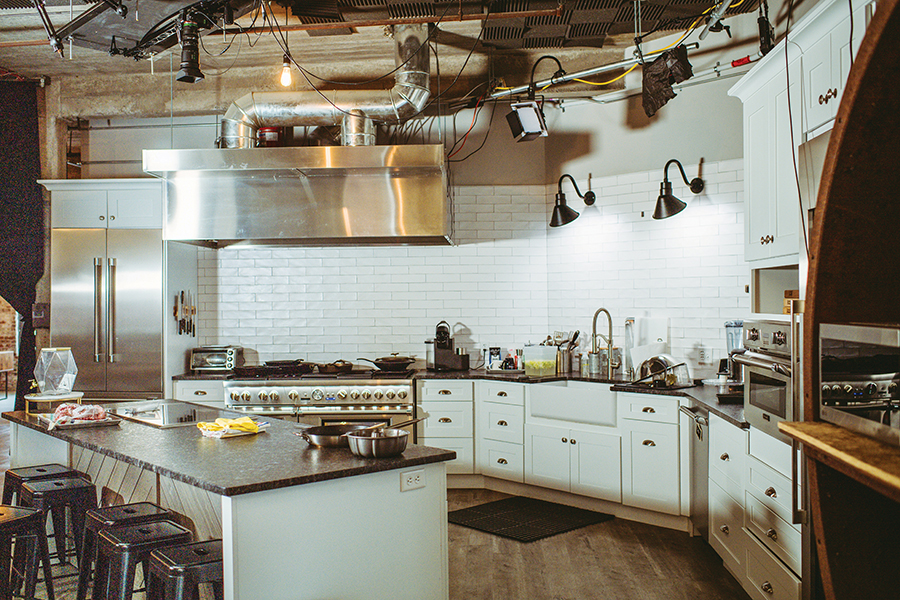
“We saw the potential for making the magic happen,” says Butcher Box’s creative director, Jennifer Valley, considering the exposed brick walls and soaring ceilings. “It’s a really easy space to think and create in.”
Because Greeley wants to cultivate a sense of community, he does not merely rent space to all comers. He looks for potential tenants who have an attitude and personality that will mesh with the existing businesses. And it’s worked: Talking to the business owners of Mills 58, almost all mention, unprompted, the sense of community in the complex. The building’s entrepreneurs greet each other in the halls, attend each other’s events, and offer to help out in any way they can.
Greeley also tries to avoid having tenants go head to head: There may be a few fitness-oriented businesses, for example, but each has a unique offering targeted at different clients.
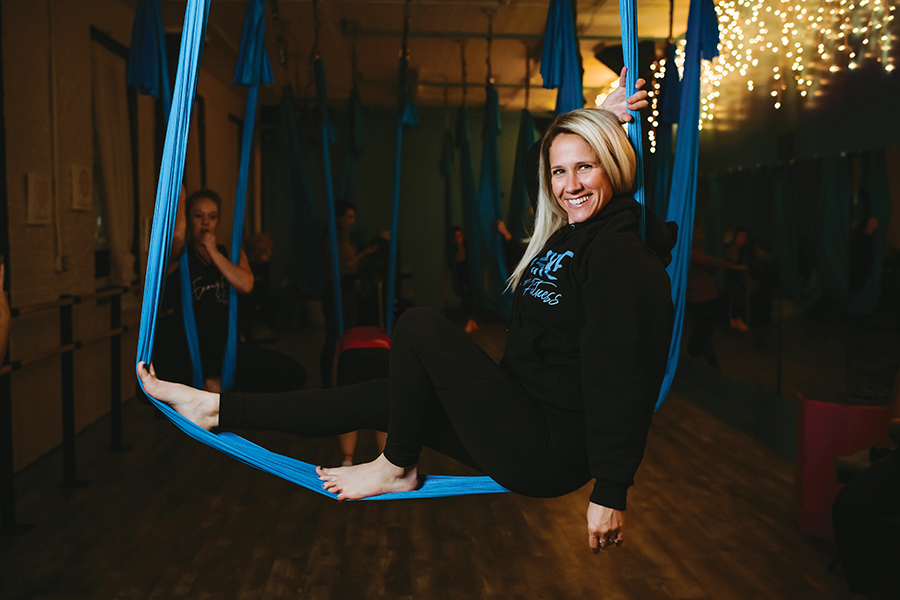
“It’s not competitive here,” says Lisa Gagnon, owner of Inspire Dance and Fitness, which focuses on children’s classes and recreational dance and fitness instruction. “We want to grow together.”
The building’s finished units are 100 percent occupied, Greeley says, but more is on the way. A food court called the “Piazzo” is slated to open in May, offering coffee made from beans roasted on premises, pizza cooked in a coal-fired oven imported from Italy, and handmade pasta crafted right before diners’ eyes. Fresh-fruit smoothies, hearty salads, burgers, and grilled meats will also be on offer and a sweets shop will be stocked with gelato and European candies.
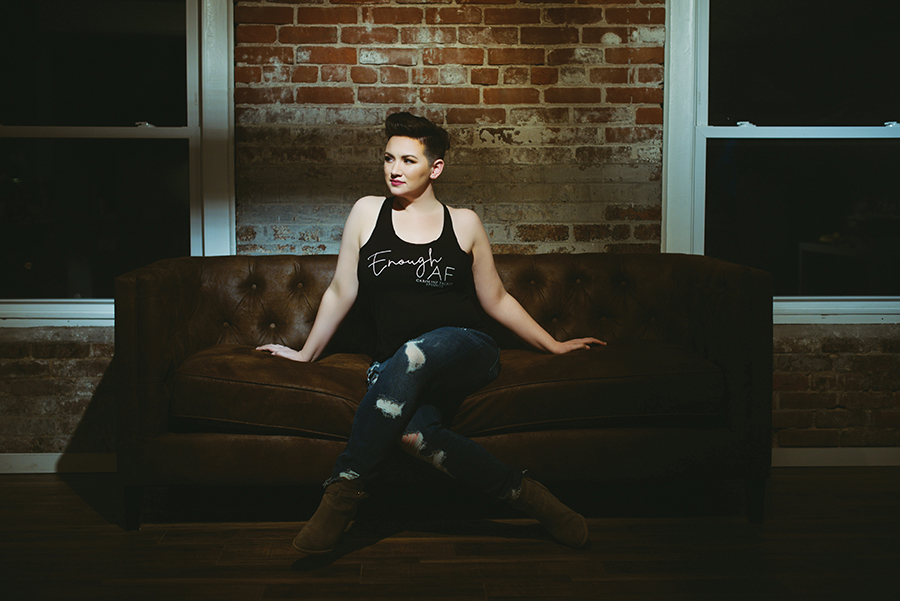
A seating area in the back will host occasional farmers markets to support even more of the community’s food producers.
“When you’re hungry, come here,” Greeley says. “You’ll leave full.”
Greeley also hopes Mills 58 can revive the original spirit of the building. In a 1924 photo he has—acquired via the antiques dealers in the building—more than a hundred employees of the original tannery stand lined up outside the building. When Greeley looks at the photograph, he sees a group of people who worked hard to provide for their families and he sees the business that let them do it.
“You think about how many families were supported out of this property,” he says. “During the Depression, this property helped put food on people’s tables.”
His goal is for Mills 58 to fill a similar role in the Peabody of today.
“If we can get enough good people in one place,” Greeley says, “something special can happen.”
For more information, visit mills58.com.

